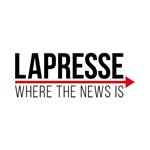ROME, Sept. 23, 2024 (GLOBE NEWSWIRE) -- “In Italy, a regulation imposing a large tax threatens 4,000 companies that supply hospitals and healthcare facilities with essential medical devices, ranging from gauze to syringes, heart valves, coronary stents, and femur prosthetics—devices crucial for treating patients. For 2,000 of these companies, the tax, called ‘payback,’ is essentially a death sentence. The future of 4,000-5,000 small and medium-sized enterprises (SMEs) in the medical device sector, as well as the sustainability of the National Health System, is at stake. If we don’t act immediately, the National Health System could collapse. We have only two months to prevent this catastrophe,” warned Gennaro Broya de Lucia, president of PMI Sanità, in an interview with LaPresse. PMI Sanità is an association representing nearly 200 Italian SMEs that supply medical devices and support the healthcare sector.
In addition to jeopardizing nearly 200,000 jobs, the ‘payback’ tax system also threatens public health. This system requires private companies in the medical device sector to cover the excess spending beyond the budget caps set by the State for regional healthcare expenditures, with a tax amounting to 50% of the total amount declared by the Regions. “This is an outrageous sum—6 billion euros—that suppliers were neither aware of nor had control over,” stressed Broya de Lucia. “The total is divided among individual companies based on revenue, not profit. In some cases, the payback represents 80%, 90%, or even 100% of a company’s revenue. There are companies with annual revenues of 5 million euros being asked to pay 4 million euros in payback, with some cases where the amount requested exceeds the company’s entire earnings or its total net worth.”
For this reason, PMI Sanità is urgently calling on the Italian government to introduce an exemption for the period from 2015 to 2018 to avoid an emergency crisis and mitigate the “devastating” impact of the tax. “Starting in 2019, the solution to prevent collapse is to raise the regional healthcare spending cap from the current 4.4% to 7.3%,” added Broya de Lucia. “The payback isn’t just a tax,” he emphasized. “It’s an unsustainable imposition applied retroactively to supplies made from 2015 to 2023. Some 4,000-5,000 companies are being asked to pay 6 billion euros over these eight years.” In short, “the payback curse creates new debts and steals companies’ credit to transfer it to the regions,” he summarized.
PMI Sanità urgently demands the introduction of an exemption applicable to all companies, regardless of their revenue. “Various proposals for a sliding scale exemption ranging from 3 million to over 50 million euros have been put forward. The higher the exemption, the more companies will be saved. Only in this way can we prevent the collapse of the Italian healthcare system and a sector made up of SMEs that are vital to the country,” concluded Broya de Lucia.
For more information:
Press Office LaPresse - ufficio.stampa@lapresse.it
A photo accompanying this announcement is available at https://www.globenewswire.com/NewsRoom/AttachmentNg/a6351088-e221-460d-952e-a35f4ed92959

source: LaPresse
【你點睇?】特朗普稱2月起或對從華徵收10%關稅,你認為中方應否作出強硬反制?► 立即投票































